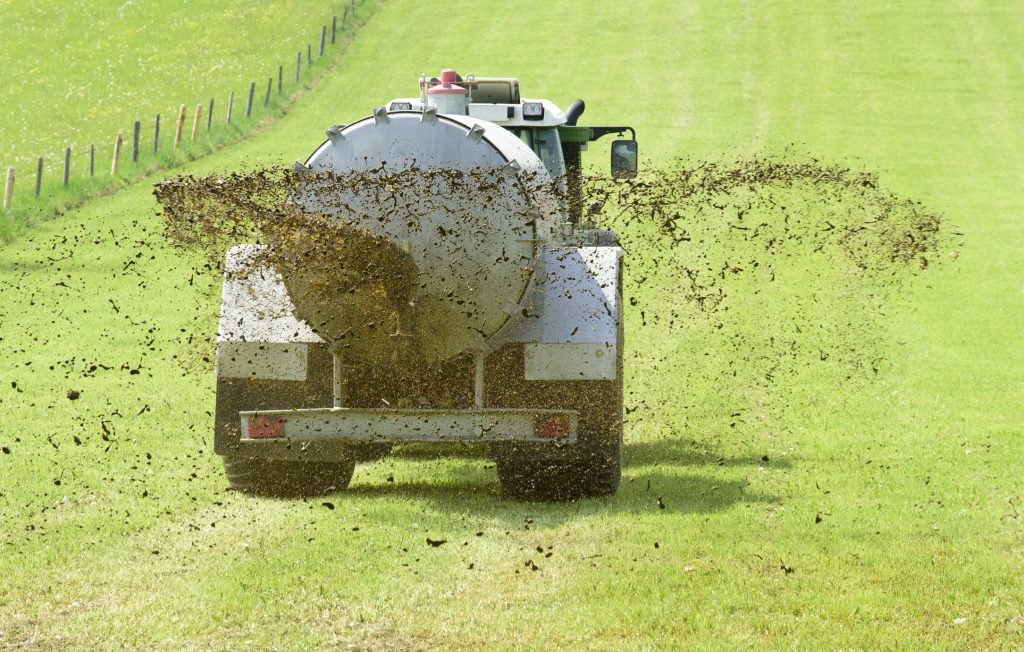Since their implementation in April 2021, Nitrate Vulnerable Zones (NVZ) have caused controversy among the Welsh farming community due to the one-size-fits-all approach.
There has been frustration towards the policy from farmers, not only in Wales but also across the border in England as the NFU have been attempting to push back against the NVZs, with its legal board making funding available to agricultural businesses who want to appeal against the regulations.
The backlash against the regulations has come from significant sections of the agricultural community, causing the Senedd’s Economy Trade and Rural Affairs Committee to launch a review into the 2021 regulations.
In our latest blog, we look at what the NVZs have meant for farmers since they were implemented and what we can learn from the Senedd Committee’s review.
What are Nitrate Vulnerable Zones?
Nitrate Vulnerable Zones are areas that contain surface water or groundwater that have been designated as being at risk from nitrate pollution, caused by agricultural practices such as the spreading of manure or fertiliser.
From 1 April 2021, these NVZs have applied to the whole of Wales, whereas only some parts of England have been designated as such.
The intention of these regulations is to protect water quality from high volumes of nitrates, which, when consumed, can cause a number of health difficulties such as blood pressure problems and can also result in headaches and nausea.
Many farmers accept this danger, but many are concerned that the limits are too restrictive and are simply an excessive drain on resources.
NVZ Regulations
In order to comply with the regulations, farmers must take actions such as adhering to manure and fertiliser spreading restrictions and slurry storage rules.
Meanwhile, there are specific limits on the amount of nitrogen that can be deployed per hectare for organic manure and livestock manure.
Records must also be taken such as drawing up a farm risk map, storage calculations, management plans and field records.
NVZ rules and regulations are enforced by the Environment Agency in England and Natural Resources Wales in Wales and failure to comply can lead to prosecutions or fines from the body, which will severely impact farmers in both nations.
Reviews of this regulation were due to take place every four years by the Department of Environmental and Rural Affairs.
Senedd Review
The Farmers Union of Wales (FUW), along with other farming groups, has long disapproved of the NVZs and maintain that the regulations in their current form are ‘detrimental’ and ‘disproportionate’.
This is because the risk of nitrate pollution is not uniform across the country and the one-size-fits-all approach has meant that many farmers have been penalised unnecessarily and bore significant additional costs.
The FUW, therefore, has welcomed the Senedd Economy Trade and Rural Affairs Committee’s recent review and subsequent report into the NVZs, which provided a number of recommendations to the Welsh government. The first recommendation put forward by the committee is to reintroduce more relaxed regulations which allowed certain farms to spread up to 250kg per hectare of nitrogen.
The second and third recommendations, meanwhile, advise the Welsh government to set out what support will be made available to farmers both financial and advisory, and that the Minister for Rural Affairs, Lesley Griffiths will detail how unintended consequences of the necessary infrastructure improvements that farms will need in order to meet these regulations.
Other relevant sections in the review include points 8, 9 and 10 which focus on promoting alternative measures that integrate more technology into farming instead of having NVZ-enforced closed periods of spreading.
When it comes to technology, the FUW suggested a means by which weather patterns can be monitored and a way of accounting for the effect of climate change on the seasons, which would allow farmers to judge whether to spread slurry, as opposed to having, arguably, binary and unnecessary closed periods.
Farming groups are reportedly set to meet with members of the Senedd in the coming weeks to ensure that the recommendations put forward by the committee will be fully implemented.
Baileys and Partners Support
Baileys and Partners is passionate about farming, and we have used our knowledge and love of the industry to support local farmers for many years.
Our practitioners have their own farm businesses, so they know the challenges farmers face first-hand, which means that we have a depth of expertise at your availability.
Find out more about Baileys and Partners expertise on farming, specifically valuations of farms in Wales, go here.







